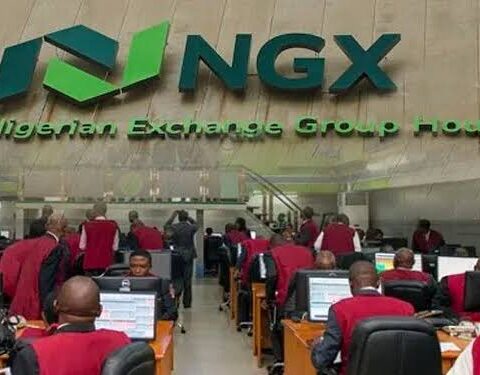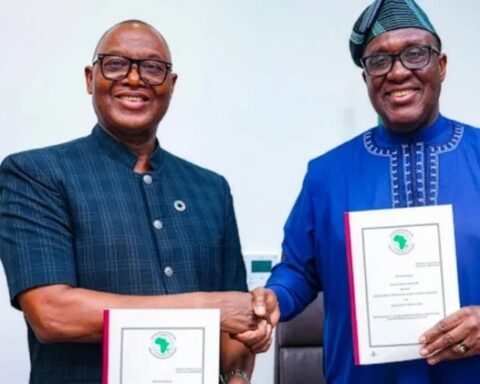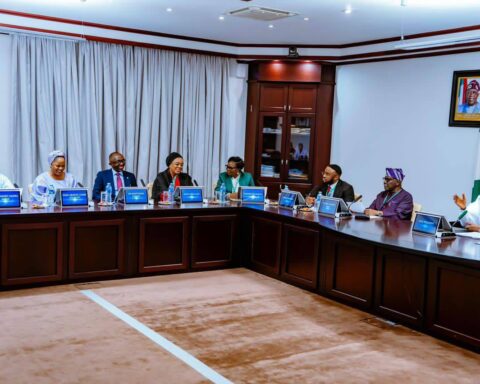The National Assembly has passed a proposed amendment to the Finance Act which seeks to impose a 70% tax on Banks’ ‘windfall’ forex profits in 2023.
The passage of the Finance Act (amendment) Bill followed the consideration of the report of the Joint National Assembly Committees on Finance by both chambers during plenary.
The report was presented by the Chairman, of Senate Committees on Finance, Senator Sani Musa to the red chamber and his counterpart in the House, Hon. James Faleke.
The Joint Committee in the report observed “that the banks enjoyed windfall as a result of exchange rate unification policy of the Federal Government.
“That the windfall was a result of FX allocation to selected Commercial Banks. The policy does not permit the use of windfall for dividend payments.”
They recommended “that the application of the provision of Section 30 of the Principal Act shall take effect from 1st January 2023.
“The levy shall be 70% (for the federal government and 30% for banks) on the realized profits from all exchange transactions of Banks.
“Any bank that fails to pay the windfall profit levy to the service has not executed the deferred payment agreement as at the time of commencement of the regime, shall be liable to pay the windfall levy withheld or not remitted in addition to a fine of 10% of the levy withheld or not remitted per annum and interest at the prevailing Central Bank of Nigeria, minimum discount rate,” the committee added.
Minister of Finance and Coordinating Minister of the Economy Wale Edun said the Federal Government of Nigeria had injected funds worth N1trn as incentives into the manufacturing sector within the last year.
Edun spoke at a meeting with the National Assembly Joint Committee on Finance over the proposed 70 per cent tax on banks’ foreign exchange windfall in 2023.
The Tuesday public hearing of the panel was the continuation of the defence on the Finance Act (Amendment) Bill 2024, deliberations which commenced on Monday.
Also at the meeting was the Chairman of the Federal Inland Revenue Service (FIRS), Mr Zacch Adedeji, who declared that the accelerated stabilisation fund focused, among others, on a series of legacy projects, geared towards putting in place infrastructure to make the sector more viable.
The Minister in his response to a request by members of the Committee that the Manufacturing sector should be considered as beneficiary from the proposed tax on banks’ foreign exchange profits (windfall tax), said the sector had already been taken care of.
Edun said: “There is the expenditure of one trillion naira (N1trn) in terms of incentives to the manufacturing sector to help them with the high cost of production.
“In addition, under the Accelerated Stabilization and Advancement Plan, which is a six-month plan for emergency economic, fiscal, and corporate sectoral actions to help, in particular, the manufacturing sector, there is low-interest funding coming for the manufacturing sector.”
In his presentation to the joint committee chaired by Senator Sani Musa (APC, Niger East), Adedeji said the proposed one-time windfall tax is geared towards the redistribution of wealth, which, according to him, would be beneficial to the various sectors.
He however explained to members of the joint committee that strategic programmes of President Bola Tinubu administration were targeted at reinvigorating the manufacturing sector.
“Accelerated stabilization funds focusing on helping the manufacturing sector are already being doled out aside legacy projects strategically targeted at making the sector more vibrant and viable.
“Some of these strategic projects that would, in terms of infrastructure, reinvigorate the sector are the Badagry – Sokoto Highway, which would make the journey from Badagry to Sokoto 11 hours.
“Also, Lagos – Calabar Coaster Highway is another strategic road infrastructural project that will bring about the required connectivity for reinvigoration of the manufacturing sector.
“The plan of President Bola Tinubu on the economy, manufacturing sector and development generally is very robust,” he said.
Sharing percentage from the one-time windfall tax between the Federal Government and the banks was however not agreed upon before the Minister, the FIRS boss, and a representative of the Governor of the Central Bank of Nigeria (CBN), were excused from the meeting.
Tinubu in an executive bill forwarded for approval by both chambers of the National Assembly, proposed a 50% sharing formula for both parties, which some members of the committees suggested for upward review.
The National Assembly, however, increased the percentage from 50% to 70% in favour of the Federal Government.



























